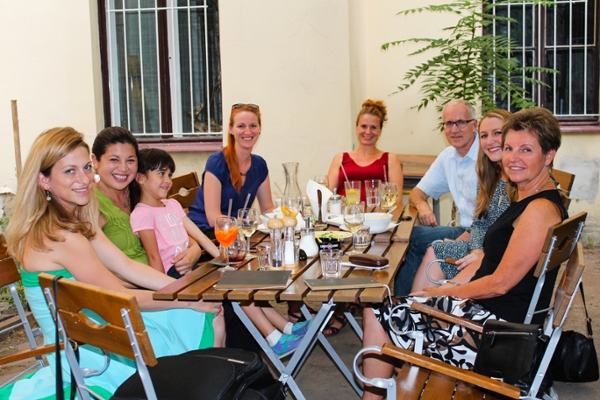Farewell CEELI
Today was my last day working for CEELI, although my internship never once felt like work. Throughout the past few weeks, I’ve participated in a variety of interesting projects. As I mentioned before, my big project was a report on the Myanmar Lawyers’ Network. Unfortunately, due to the convoluted political inner workings of the MLN, some of the information that I collected was controversial; therefore, the report will solely function as a CEELI/BCP internal document. With this in mind, CEELI’s Executive Director, Chris Lehmann, requested that I produce a broader report on pro bono activity in Myanmar, titled Filling the Gap: Pro Bono Advocacy in Myanmar, so that CEELI could have a document that is actually publishable. If any of my readers are interested in viewing the latter report, please feel free to contact me.
During the workweek, the rest of my time was occupied by more menial (but still interesting) tasks, such as updating the website or editing documents drafted by some of my Czech colleagues. My weekends, on the other hand, were often spent participating in either a CEELI or a BCP program. In order to protect the participants from governmental backlash, a few of CEELI’s programs are strictly confidential. However, I believe I am able to talk about a particularly compelling (and highly relevant!) program, which was hosted by the Rule of Law Collaborative (Justice Sector Training, Research and Coordination-JusTRAC), University of South Carolina, and the CEELI Institute. Speakers at the multi-day program included U.S. Charge d’Affaires Steve Kashkett, Sergei Leshchenko, Member of the Ukrainian Parliament, and the Hon. Richard D. Bennett, U.S. District Court Judge (District of Maryland). The program brought together policy makers, government officials, business leaders, journalists, civil society representatives and academics to discuss challenges posed in Ukraine by endemic corruption, as well as to explore opportunities for greater coordination and collaboration. The panels addressed Preventive Strategies for Countering Corruption, Enhancement of the Enforcement Capacity of Anti-Corruption Institutions, the Role of Civil Society and Media in Addressing Corruption, the Current Business Landscape in Ukraine, Perspectives on Enhancing Commercial Investment, and Commercial Sector Reform.
Another wonderful program that took place in July is an ongoing program with BCP titled “Support of the Integration of Burmese Resettlers into Czech Society.” The project started in April 2015 and will finish in March 2016. Its goal is to improve the intercultural connections between resettled Burmese refugees and Czech citizens. Basically, on a Saturday a bunch of Czech citizens and I gathered in the home of a family of Burmese refugees to cook some of their traditional foods. The next day, we hosted an event at a local church during which Sabe discussed ongoing issues in Burma, and afterward, local Czechs were able to interact with the Burmese family, while trying Burmese food. The whole thing was conducted in Czech, so I was mostly only able to communicate with the Burmese family, who spoke a bit of English.
All in all, I LOVED my internship with the CEELI Institute and Burma Center Prague. Despite their relatively small size, both organizations are engaged in activities that have a major impact on the promotion of rule of law worldwide. I feel incredibly privileged to have been a part of their ongoing efforts to strengthen democratic institutions and build respect for human rights, and I look forward to hearing about the ways in which they will continue to do so in the future.
